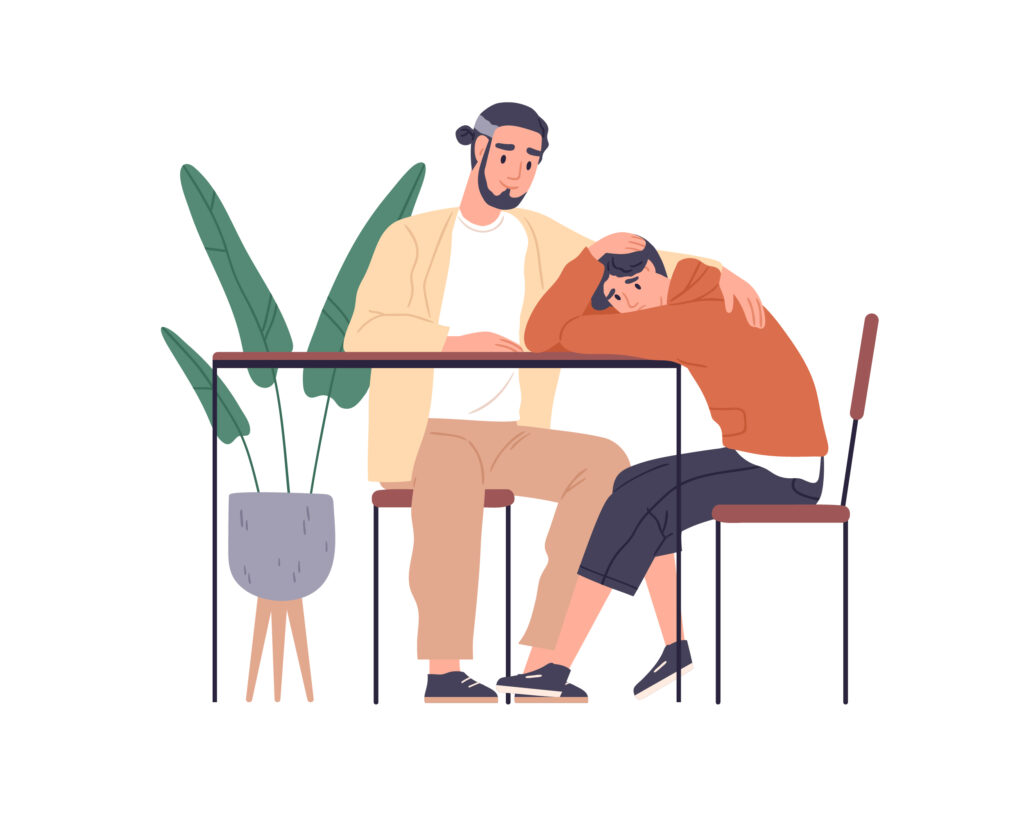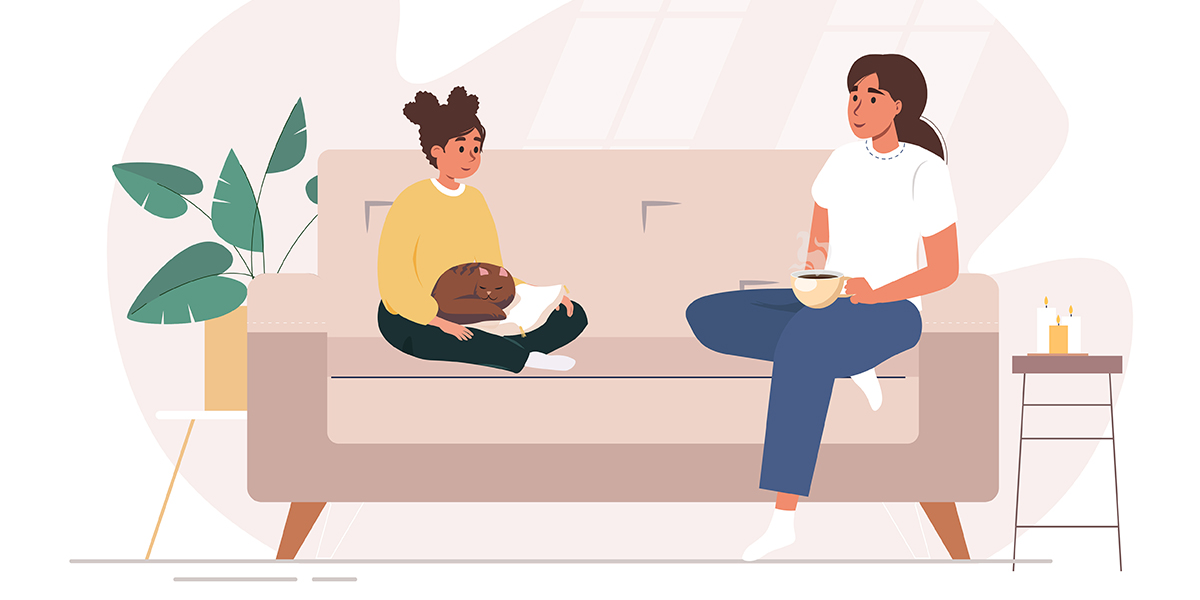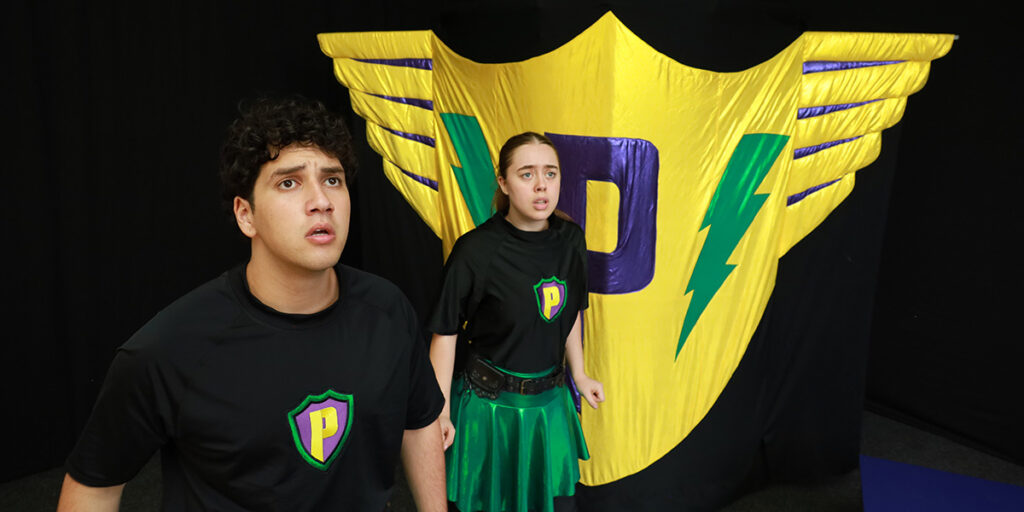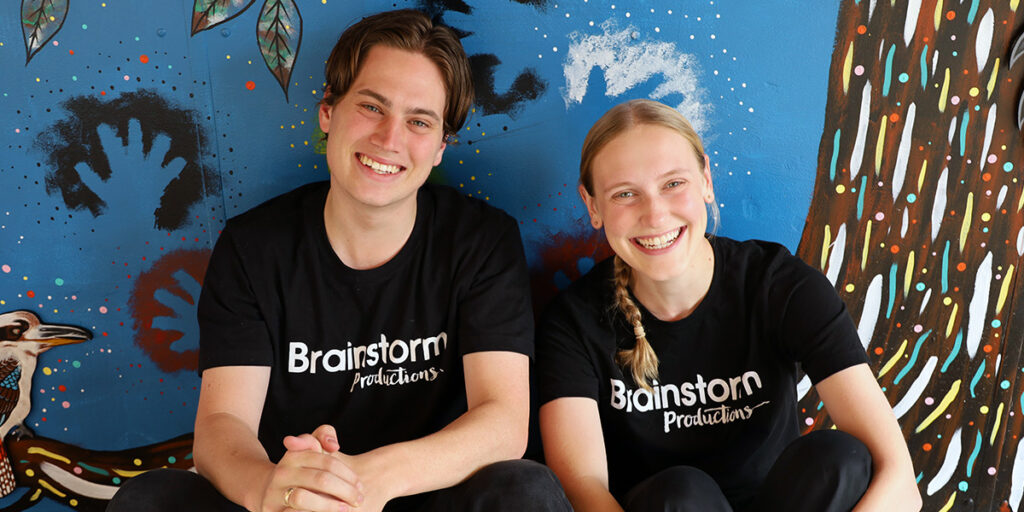Adolescence is a peak time for developmental change – physically, mentally, socially, and emotionally. In addition to these changes, young people may also be managing significant environmental and circumstantial stress from school, worries about their identity and future, peer pressure or family dysfunction.
The adolescent years are a common time for mental health problems to develop or emerge. Early intervention is the key to preventing long term problems or crises, and to ensuring young people have the support needed to thrive.
Mental Health First Aid® Youth (Youth MHFA™) is a practical way for adults to play an active role in supporting the mental health and well-being of young people. Youth MHFA training equips parents, carers, school staff, sports coaches and other adults in regular contact with young people, with the knowledge, skills and confidence to listen, connect and offer support.
What is the state of youth mental health in Australia?
The stats and facts around youth mental health in Australia are concerning, and a united effort by adults and young people is needed to address them. Studies suggest that around 40% of adult mental health conditions commence before the age of 14 (AJGP, 2018), and that over 22% of young Australians (agreed 15 to 19) meet the criteria for probable serious mental illness (Black Dog Institute, 2021). Suicide remains the leading cause of death for young people year on year, and thousands of young people will experience suicidal thoughts each year (ABS, 2020). No young person should miss out on the support they need and deserve.

Common mental health problems:
- Depression – Around 1 in 6 young people will experience depression, and it is the single leading cause of illness burden for young people (Orygen, 2017)
- Anxiety Disorders and Panic Attacks – Around 15% of young people (aged 16 -24) will experience anxiety disorders in any given year (Orygen, 2017). These are a common but ranging set of disorders that can cover everything from general anxiety, to experiences with post-traumatic stress disorders, and obsessive compulsive behaviours.
- Eating disorders and body image concerns – Around 30% of young people are extremely or very concerned about their body image (Mission Australia, 2019). Adolescence is also a peak time for the emergence of disordered eating which can present in many ways and have serious long-term physical and mental implications.
- Suicidal thoughts and behaviours – Alarmingly in 2020 alone, 480 young people (aged 5-24) died by suicide. It is estimated that tens of thousands of Australians experience suicidal ideation (thoughts about suicide) each year. Adolescence is a peak time for risk of suicidal thoughts and behaviours. Intervention is essential.
In addition to these common mental health concerns, young people may also experience many other mental health problems such as drug and alcohol abuse, and complex mental health problems that may emerge in childhood including schizophrenia or psychosis.
What can adults do to help young people?
While young people are remarkably resilient, and their skills should not be underestimated, they often lack the tools to help themselves. Mental health problems can feel confusing, overwhelming, scary, taboo, or embarrassing for a young person. They may be worried about judgement, exclusion, repercussions, or shame if they speak out, or they may simply not know how to label or talk about what they’re experiencing or where to turn for help.
For those struggling with their mental health, accessing clinical support from a doctor, counsellor or psychologist is rarely the first port of call. They may more readily respond to offers of support from trusted peers or adults. Often all they need is for someone to notice and reach out with empathy and genuine offers of assistance.
Depending on the mental health problem, duration, severity and the individual young person (e.g. their environment, physiology, genetics, lifestyle and personality), the supports and treatments needed will be different. There is help available to suit every young person. Your role as an adult is to support them to find it.
What Is Youth Mental Health First Aid?
Youth Mental Health First Aid® (MHFA™) is a training program for adults who have regular interaction with young people aged 12-18. It teaches those adults the knowledge and skills to confidently support a young person who has signs of developing, worsening or crisis mental health problems. The program has an emphasis on mental health literacy, practical intervention skills, and stigma reduction.
Who should undertake Youth Mental Health First Aid training?
If you have regular interaction with young people, or have them under your responsibility, then you should consider undertaking the Youth MHFA training course. The course is highly applicable to all different communities, settings and audiences. People who commonly complete a Youth MHFA training course include:
- Teachers, Educators and School Administrators
- Parents, Adult Family Members and Carers of young people
- Coaches, Mentors, Activity Leaders who work with young people
- Workers in contact with young people e.g. Social Workers, Youth Workers, Health Professionals, Emergency Services Personnel, Pastoral Care Staff, Correctional Officers or anyone working with young people regularly
- Employers who commonly employ or train young people
- People who provide a leadership role in the community and are in contact with young people.
This article was written and published by Mental Health First Aid Australia. READ THE FULL ARTICLE HERE to learn more about the training.
At Brainstorm Productions we believe that every young person deserves to be supported by the adults around them. Our student wellbeing programs include a strong focus on help-seeking and we encourage all students to access support from trusted adults. We also have staff on our team who are trained in Mental Health First Aid, to support our young actors while they are on tour.
For information about how to implement Mental Health First Aid training in your school visit: mhfa.com.au/schools.




